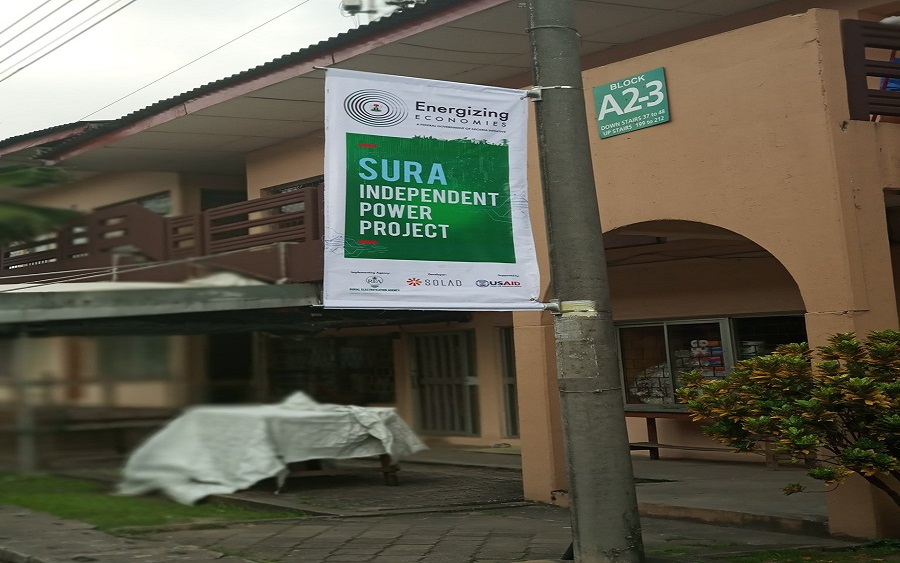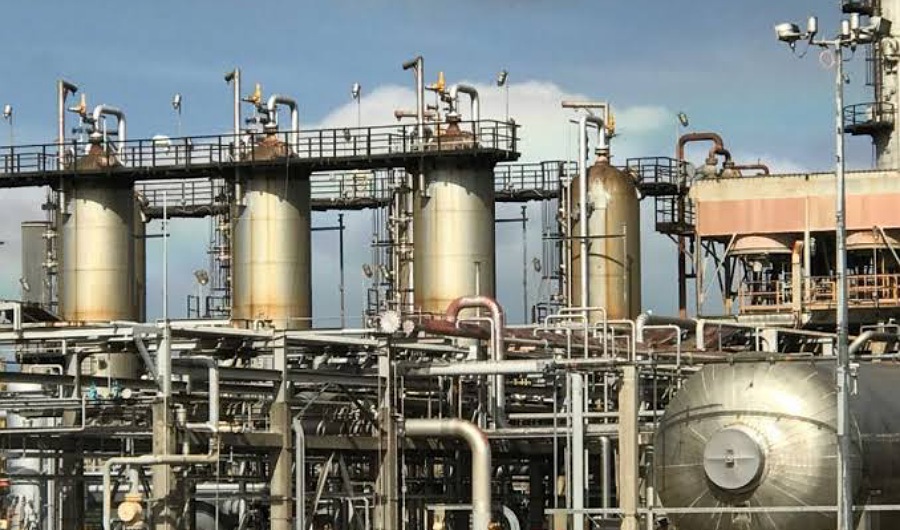The Vice President of Nigeria, Professor Yemi Osinbajo, commissioned the 1.5MW independent power project at the Sura Market, Lagos Island in October 2018. The project was expected to provide 24 hours of stable power supply to businesses around the market using off-grid electricity solutions.
An off-grid solution is the deployment of power supply by independent developers bypassing the distribution, transmission and generating power value chain of Nigeria’s main grid supply.
The power project at Sura Shopping Complex was built by Solad Power Holdings, an Independent Power Provider (IPP), as part of the Federal Government’s Energising Economies Initiative (EEI) policy being implemented by the Rural Electrification Agency (REA). The Sura Market Complex currently has about 1,047 shops which are all connected to this new power project.
After the commissioning of the power project, nothing has been heard of its operation and how it has affected the running of business in the market. This is why Nairametrics visited the market to find out from the business owners and operators, what their experiences have been so far and if there the project has in anyway impacted their businesses. There are mixed reactions to our inquiries.
[READ MORE: Nigeria’s power sector loses N69.1 billion in 7 weeks]

About the market: The Sura Shopping Complex is strategically located in Lagos Island. It’s on the other side of the Osborne Ikoyi Link Bridge and situated around the edges of the ever-busy Simpson Street where it is accessible to thousands of customers daily.
Our findings
Relative growth in businesses: While surveying the complex’s environment, we met a woman who sells interior decoration materials. The dark-complexioned woman is probably in her 40s. Her friend who sat beside her as they engaged in a conversation often referred to her as ‘Mama Tobi’.
We asked Mama Tobi how business has been and if the power project has in anyway, helped to improve her business. She remarked that while business has been rather stable, she hasn’t experienced the sort of growth one would expect from the impact of stable power supply. According to her, her business doesn’t necessarily rely on stable electricity. Aside the comfort of enjoying reliable power, there has been no direct impact on her sales.
Dearth of growth in businesses: We moved on to a Grills and Small Chops Restaurant which is also situated in the Complex. One of the attendants was available to respond to our inquiries. The attendant, a slender lady in her teenage years, informed us, rather reluctantly, that business hasn’t been so fantastic despite enjoying stable electricity. She maintained that power supply has no way influenced sales, citing low patronage as an even bigger problem.
Good growth in businesses: A shop occupied by KSBC Business Solutions revealed to us that they have experienced increase in sales since the IPP went live. According to the representative of the company, who did not want his name revealed, the type of business they do requires electricity and so naturally, there was an immediate impact on their revenues. He said, “Although we had alternatives to generate power before the IPP was launched here, but since launched, we have been spending less on power supply. We work a lot here, and we would be spending more on diesels should this project had not been put in place.”
Another lady who is a staff of a nearby traveling agency said Sura Market is a conducive environment to run a business. She explained that she has been in the complex for up to four years, and confirmed the good quality of power supply. She said this is why every business owner should embrace the Sura Power Initiative.
[READ ALSO: Electricity not the only factor limiting Nigeria’s economy – Boason Omofaye]
Shop owners’ major complaints
Though some of the shop owners appreciate the power project in that it has brought constant power supply to the market, they have complaints bothering on their experiences. However, their major complaint is high electricity tariff.
Most of the business owners complained of the N52.8 tariff which they pay for enjoying stable electricity. They asserted that they had to turn off their electrical equipment even in sobering heat. One of them said, “As you can see, I can’t power my air-conditioning at the moment. Look outside, the weather is hot but I will rather use a fan because of the cost.”

Positive reactions to the project
Despite the complaint of having to pay a high tariff for enjoying stable electricity, we met some occupants of the Complex who have only good things to say about the project.
Stable power supply: Some occupants said they could only be glad that they are enjoying stable power supply, especially when 99% of businesses across Nigeria cannot boast of 10 hours of power regularly.
An occupant said, “How many places can you go to in Nigeria that you will see a stable power supply?”
A woman also revealed that she believes that the power supply is expensive but maintained that she’s cool with it because the power is always there.
No ‘crazy’ bills: Another occupant who deals in interior decoration materials, said the good thing about the project is that, “We don’t pay crazy bills like other people that run businesses in Nigeria. You can gauge your power supply, the light is there for you to use.”
EEI’s unofficial response to the plight
One of the officials of the EEI who didn’t disclose his identity to our correspondent, said those who are complaining about the cost of their electricity usage are those who are really not using the electricity.
According to him, the power supply is underutilised and the initiative has been more in favour of those running production businesses within the complex.
Note that other staff of the complex’s power suppliers declined to grant our interview request.
[READ THIS: Tinubu’s daughter reacts to the protest in computer village]
















